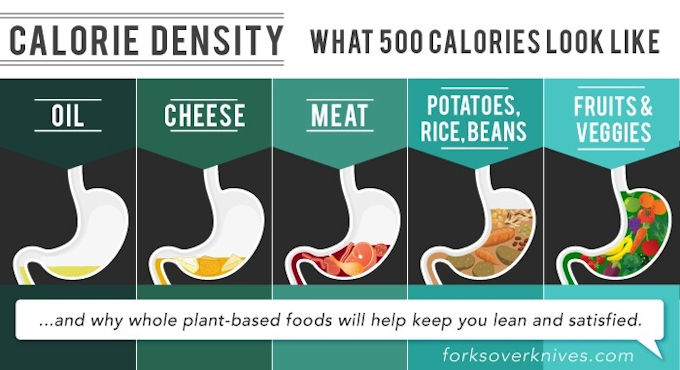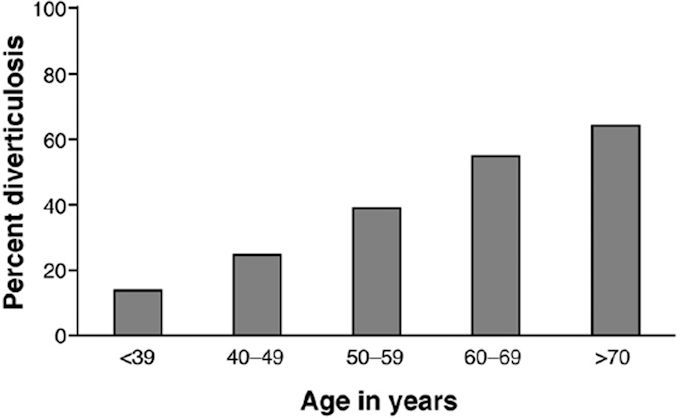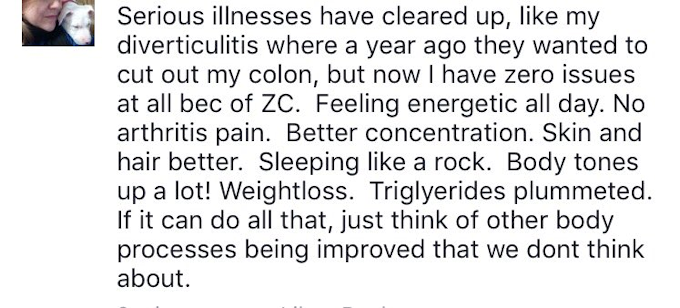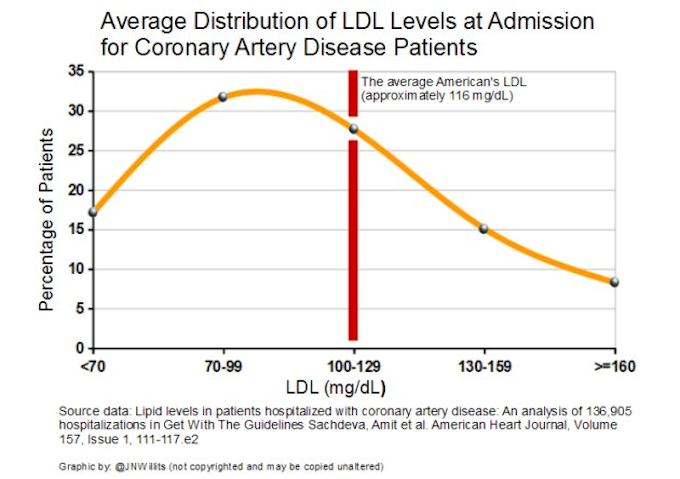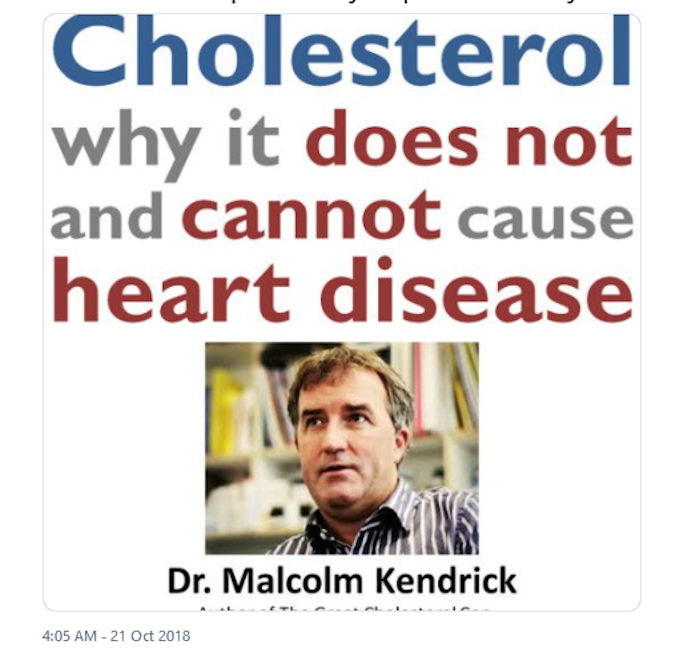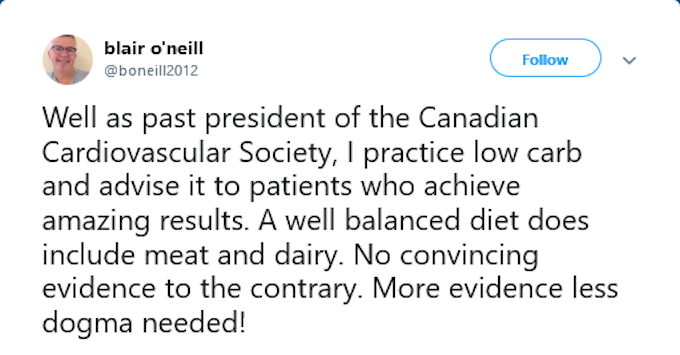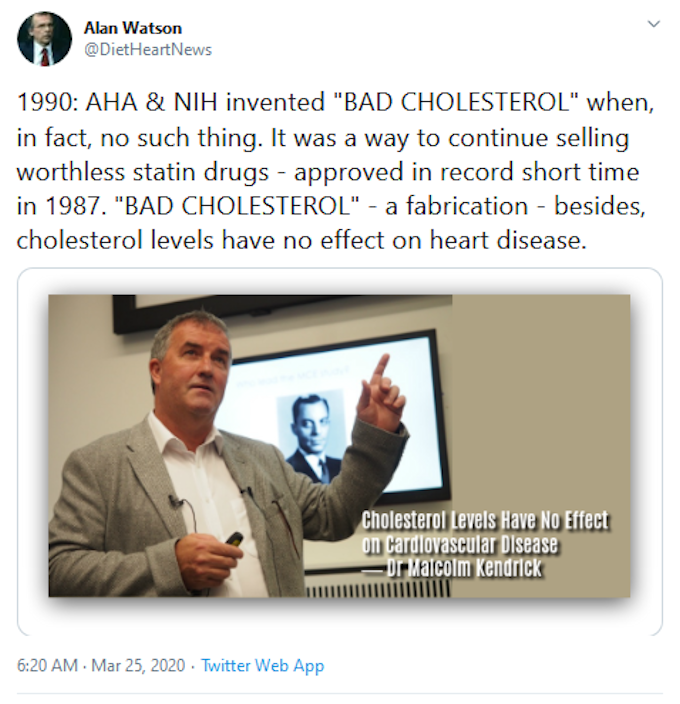
What you can do to improve your metabolic health
Lifestyle Basics for Everyone
Improve Your Heart Age by Diet and Exercise

Two years on a Banting diet plus some exercise improved the heart age by 12 years. Clear evidence that you can improve your own health. ![]() You can access The Joint British Societies recommendations on the prevention of Cardiovascular Disease (JBS3) here.
You can access The Joint British Societies recommendations on the prevention of Cardiovascular Disease (JBS3) here.
So if we ask how many adult Americans are metabolically healthy, what do we find? Those who have optimal health are only 12% of the population. (None of the six markers listed.) A medical diagnosis of Metabolic Syndrome requires you to have three of those markers.
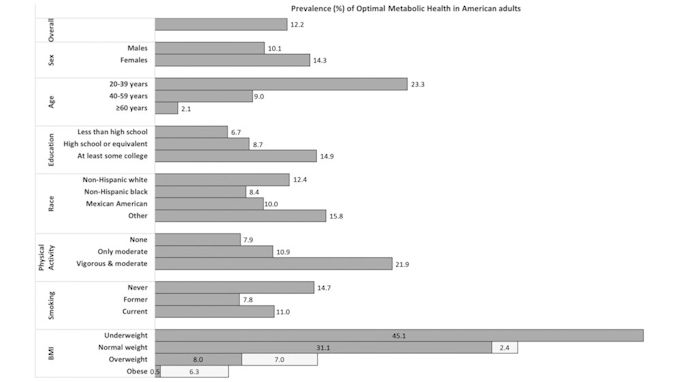
The Prevalence of Optimal Metabolic Health in the USA.
Personal Health Assessment
Personal Health Assessment Spreadsheet for Seniors
This spreadsheet automatically calculates your score as you fill it in. You can print it, but it's intended to be used online.
Three More Documents (Printable)
A health diary for one week.
Daily-one-week.pdf
Life Satisfaction and Health Satisfaction Wheels.
Life-Health-Wheels.pdf
Two BLANK wheels to focus on what concerns you.
Blank-pie-charts.pdf
Calorie Density V. Nutrient Density
The assumption made here is that the bulk of vegetables will fill you up. You will be less hungry. That fails in practice. The great bulk of vegetables takes longer to eat, and because vegetables lack protein and fat, you quickly feel hungry again.
The dietary guidelines recommend that we eat nutrient dense foods. A concept OFH readily accepts. But how do you decide which foods are nutrient dense? The guidelines adopt the view that nutrient dense means high mineral or vitamin content and a very low calorie load. So in this view most green and colorful vegetables are nutrient dense.
There is immediate conflict in the nutrition community about what is meant by the term "nutrient density". The 2010 US Dietary Guidelines talk about density of fruit, vegetables and whole-grains. The writers of the guidelines are concerned about the ratio of micro nutrients to energy. In this sense "energy" is the enemy because we are getting too fat. All foods with high fat content or high on the glycemic index were therefore not recommended as healthy.
An alternative view is that nutrient dense foods are satisfying to eat, and sustain you for a long time between meals. In this view meats and offal meats and animal fats, and dairy like eggs, butter and cheese are the nutrient dense foods.
We are told that maintaining a healthy weight is about control, calories in (what you eat) = Calories out (exercise). The official advice (secret) is to count calories, eating 500 kcal a day less, and to exercise about 30 minutes most days, to lose weight.
There is clear evidence that this "secret" to weight loss, CICO, is wrong. False news is not just a modern reality.
OFH believes that counting calories is a difficult thing to do. Even if you could count calories in anything like an accurate way, calories in the body don't in fact work like the mathematical model suggests. The calories in carbohydrates, fats, and proteins are metabolised in quite distinct ways, they are not "all the same."
Diverticulosis
You can see that diverticulosis is very common, and gets more common as we age. Most people who have it don't suffer in any serious way. But it's very serious and painful for some.
In hospital they put people on a liquid diet and use antibiotic's. They sometimes use surgery to remove parts of the bowel. Then they send people home to eat a normal diet.
However, there are many anecdotal reports that a carnivore diet resolves this problem. OFH understands why doctors and dietitians don't recommend this diet. It seems to be so highly "unprofessional." Everybody knows that fresh fruit and vegetables are good for you. Everybody knows that 35gm of fibre in your diet every day is important to good bowel health. Except, that maybe, that's not so.
A zero carb diet eliminates all vegetables from the diet
Dietary Fibre
It's recommended that we eat at least 35gm of fibre a day. The purpose is partly to reduce the magnitude of glucose spikes, but also to help with regular bowel motions.
Yet, people who limit carbohydrates in their diet have very stable blood glucose levels. And it you have bowel issues, fibre in the diet makes bowel pain worse not better.
Note that on a zero fibre diet, all symptoms of bowel distress vanished. Exactly the opposite of the standard advice and expectation.
OFH recommends that on a Banting Diet there is no particular need to seek fibre in the diet. In fact people who eat a carnivore diet, with no fibre and close to zero carbohydrate seem to get on perfectly well.
Open Future Health, has no medical expertise, but this seems to be a situation that should be discussed with your doctor and your surgeon. It will take 30 days to try the carnivore diet as a trial. We know that's perfectly safe to do, even if it feels a bit strange.
Saturated Fats are NOT a CVD Risk
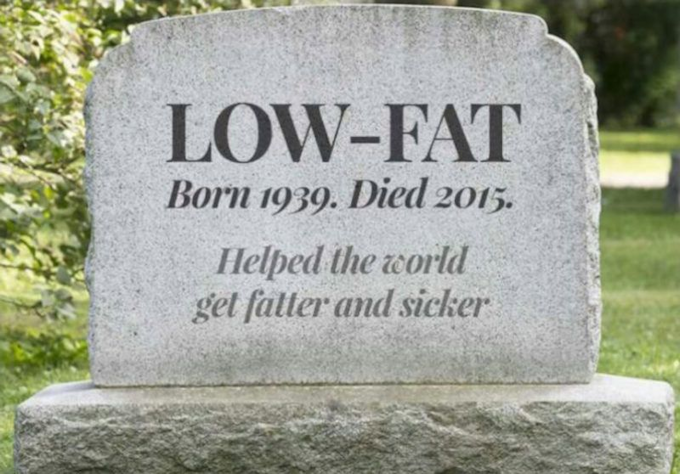
The evidence that a low carbohydrate diet is superior to a low fat diet for weight loss is overwhelming. Yet in many places the "low fat" diet refuses to die. ![]() The Public Health Collaboration notes that in 63 Random Controlled Trials, there was better weight loss on a Banting style diet: 54 v 7. showing that there was a very significant advantage to the Banting style diet 32 v 0.
The Public Health Collaboration notes that in 63 Random Controlled Trials, there was better weight loss on a Banting style diet: 54 v 7. showing that there was a very significant advantage to the Banting style diet 32 v 0.
![]() Saturated fat does not clog the arteries: coronary heart disease is a chronic inflammatory condition, the risk of which can be effectively reduced from healthy lifestyle interventions. Link to the British Journal of Sports Medicine
Saturated fat does not clog the arteries: coronary heart disease is a chronic inflammatory condition, the risk of which can be effectively reduced from healthy lifestyle interventions. Link to the British Journal of Sports Medicine
Officially, a low fat diet protects your heart from artery clogging plaques. Saturated fats (mostly animal fats) are less desirable than mono-unsaturated fats and poly-unsaturated fats (mostly vegetable or seed oils).
Most of us have been trained to avoid eating fat, particularly saturated fat. Eating a Banting diet is a challenge in the beginning because we have years of education telling us the saturated fat is bad for us. Many people believe that saturated fats increase LDL-cholesterol, and consider that to be a cardio-vascular risk. Sadly, that's what most doctors have also been trained to believe. (Cognitive dissonance is a powerful force.)
Low Cholesterol Protects You Against CVD
This graph shows that people admitted to hospital with Coronary Artery Disease. Their LDL-C was measured on admission. Most of them have low LDL-C.
Low HDL-C and high LDL-C showing significant overlap of admission to hospital with CVD problems
Admission to hospital with CVD. Fewer than 25% of patients had LDL-C >130 mg/dL.
These two diagrams show people with low LDL-cholesterol, and people with high LDL-cholesterol. Notice the very substantial overlap of the groups, and the people with higher LDL-cholesterol tend to live longer.
We have been told to eat a low cholesterol diet, limiting eggs for instance. Even if that advice was right, it doesn't work because cholesterol is essential to the body, and the body readily makes it's own.
When people eat a high carbohydrate diet, doctors recommend people with high LDL-cholesterol take statins. When people switch to a low carbohydrate diet LDL-cholesterol commonly rises. Should statins be offered? OFH thinks not.
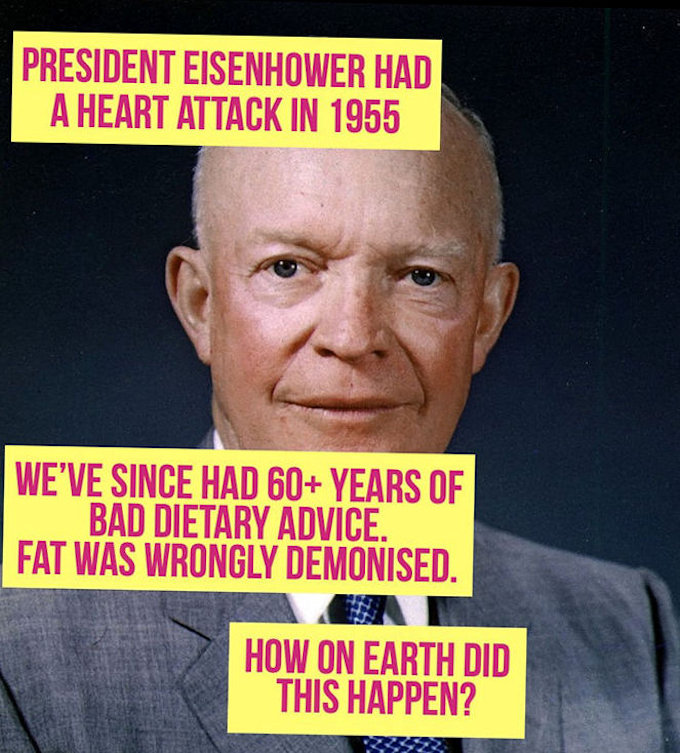
Of course President Eisenhower was given the very best medical expertise of his day. Sadly the low fat, low cholesterol advice was exactly wrong. His smoking was not considered a problem.
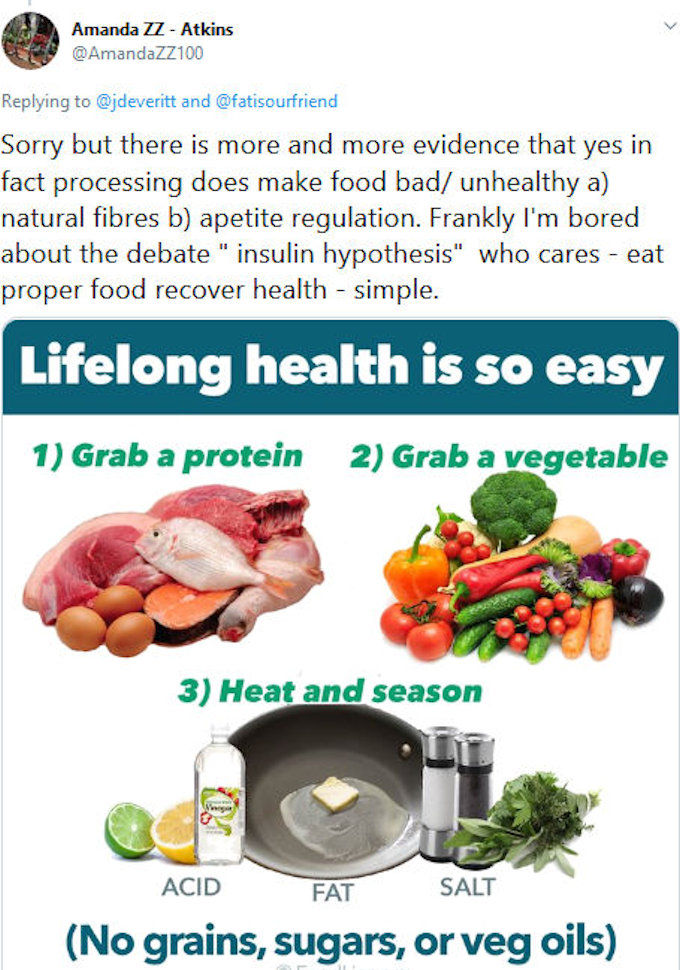
Dr Malcolm Kendrick, has worked for many years to show that the benefits of statins are not as claimed. The backlash against this view is very strong.
Smoking, Alcoholism and Drug Use
Smoking is declining but the industry is fighting back.
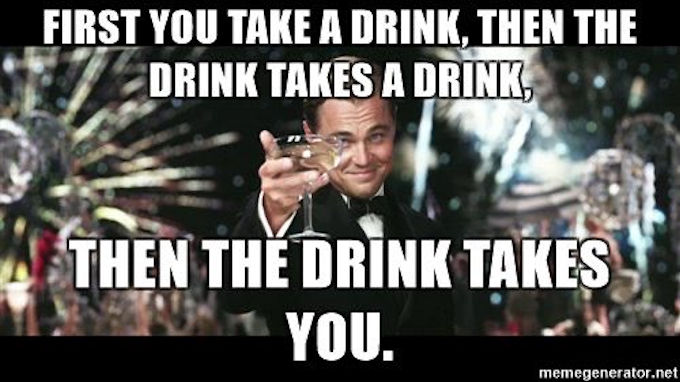
Excess alcohol kills both the young and the old.
There are many drugs that destroy health, but alcohol is by far the worst.
Further reading
Here are Eight more Useful Preparation Pages
![]() Understanding Private and Professional Dissonance
Understanding Private and Professional Dissonance
![]() Better Nutrition to improve your health
Better Nutrition to improve your health
![]() Metabolism, Insulin Resistance and Mental Health
Metabolism, Insulin Resistance and Mental Health
![]() Preserving Bone and Muscle Strength
Preserving Bone and Muscle Strength
![]() What is the Best Dietary Pattern for Humans? (Includes OFH Video Three)
What is the Best Dietary Pattern for Humans? (Includes OFH Video Three)
![]() What Causes Type II Diabetes? Obesity?
What Causes Type II Diabetes? Obesity?
![]() The Search for Evidence Based Medicine.
The Search for Evidence Based Medicine.
![]() Forbidden Conversations - Family Silence - My Health is My Business (Includes OFH Video Two)
Forbidden Conversations - Family Silence - My Health is My Business (Includes OFH Video Two)
